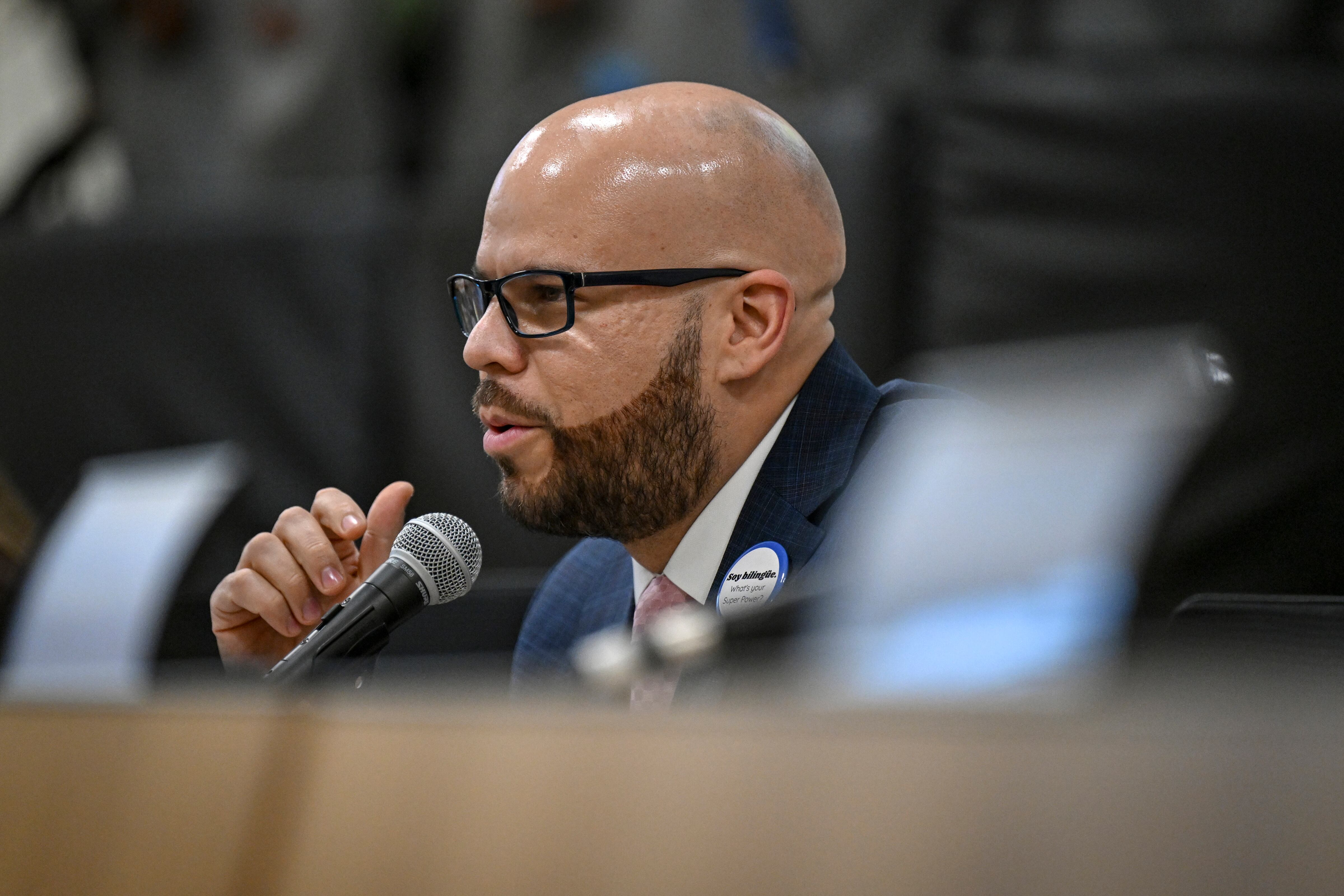Sign up for Chalkbeat Colorado’s free daily newsletter to get the latest reporting from us, plus curated news from other Colorado outlets, delivered to your inbox.
Denver Public Schools Superintendent Alex Marrero has far fewer performance goals this school year. But the goals he does have are more ambitious, he said last month.
For example, Marrero wants the share of Denver students in grades 3-8 who meet or exceed expectations on the state literacy test to increase from 40% to 42%. His goal last year was for that percentage to increase by just 1 percentage point.
Marrero’s targets, which the school board unanimously approved at a meeting last month, might be more ambitious. But the district still isn’t on track to meet the academic goals he laid out in Denver Public Schools’ strategic plan in 2022.
That plan, for instance, calls for 49% of third- through eighth-graders to meet or exceed expectations on the state literacy test by 2025-26. Hitting that goal would require a big jump of nine percentage points over two school years; in recent years, district scores have either been flat or climbed by 1 percentage point each year.
Last school year, Marrero’s performance goals included more than 230 metrics by which the board evaluated him. This year, his performance goals include just 27 metrics.
At the December school board meeting, Marrero said he crafted his goals for the 2024-25 school year with several pieces of feedback in mind, including that he should narrow his focus and put more emphasis on academic outcomes.
Gone are goals related to student attendance, limiting tickets and arrests by police officers in Denver schools, and how much produce the district will harvest from its greenhouse. (Last year’s performance goals included a very specific target harvest of 8,160 pounds of tomatoes.)
Marrero kept goals related to student test scores, high school graduation rates, and staff retention rates. He also added a goal related to the board’s school closure policy, under which it recently voted to shutter or shrink 10 schools at the end of this school year.
The goals are officially known as “reasonable interpretations.” They are Marrero’s interpretation of how to carry out the board’s overarching goals for Denver Public Schools. The board uses Marrero’s performance goals to evaluate him, their sole employee, every October.
This past October, Marrero earned a $17,326 bonus for meeting 85% of his performance goals. That dollar amount is equal to 5% of his annual $346,529 salary. Marrero’s contract allows him to earn a bonus of up to 12.5% of his salary if he meets all of his goals.
Marrero’s 2024-25 performance goals say he will:
- Increase the overall percentage of third- through 11th-grade students who are proficient in literacy and math by two percentage points, as measured by state standardized tests.
- Do the same for groups of underserved students, including Black and Latino students, students with disabilities, and students who qualify for subsidized school meals.
- Increase the four-year high school graduation rate by two percentage points, both overall and for the same groups of students.
- Maintain or increase the pass rates for students taking college-level courses, as well as career and technical education courses.
- Maintain or increase the number of students who graduate with an industry certificate.
- Maintain or increase the number of students who graduate with a Seal of Biliteracy affirming that they can read, write, and speak in two or more languages.
- Increase the participation of certain groups of students in internships or apprenticeships. Those groups include Black and Latino students, students with disabilities, students who qualify for subsidized school meals, and students learning English.
- Increase the participation of those same groups of students in college-level courses.
- Maintain or improve the retention rates of teachers, assistant principals, and principals of color; female leaders of color; and bilingual teachers.
- Improve how students, families, and staff rate the district on annual surveys that measure perceptions of health, safety, belonging, and other metrics.
- Audit three district systems to ensure they are equitable.
- Ensure the district’s six community hubs meet the needs of the community.
- Achieve the goals laid out in the district’s climate action plan.
- Follow the requirements of the board’s school closure policy, officially known as Executive Limitation 18. The policy calls for the superintendent to present a comprehensive enrollment report to the board each June and then recommend schools for closure or consolidation by November.
Melanie Asmar is the bureau chief for Chalkbeat Colorado. Contact Melanie at masmar@chalkbeat.org.





